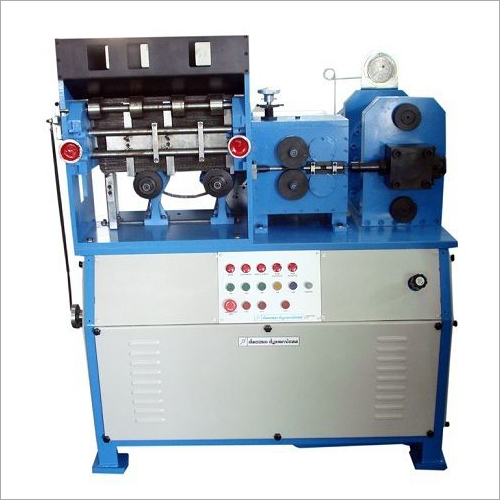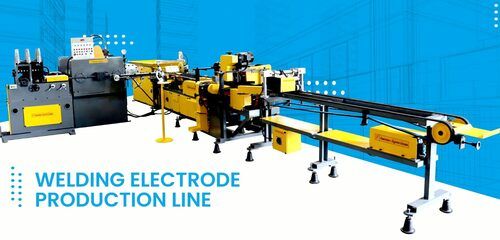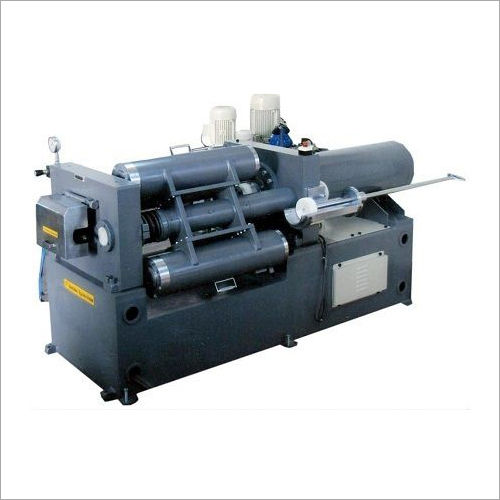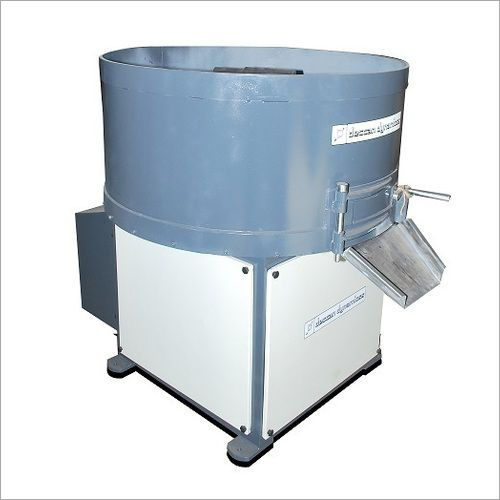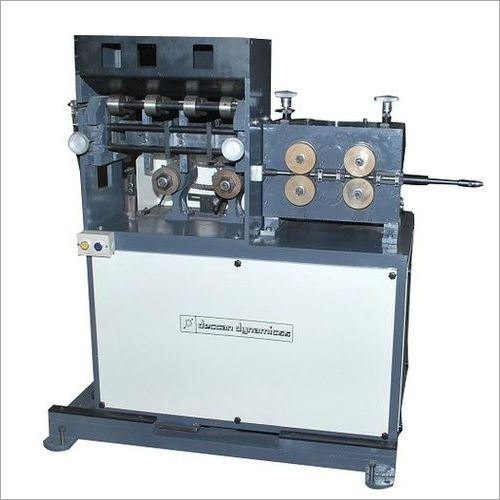
Lab Model Extruder
Product Details:
- Speed Up to 60 RPM
- Drive Type Electric Motor Driven
- Dimension (L*W*H) Approx. 1000 x 450 x 600 mm
- Material Stainless Steel Contact Parts
- Control System Digital Temperature and Speed Controller
- Usage & Applications Laboratory R&D, Polymer Extrusion, Material Testing
- Machine Type Benchtop/Lab Model
- Click to View more
Lab Model Extruder Price And Quantity
- 1 Unit
- 3000000 INR/Unit
Lab Model Extruder Product Specifications
- Up to 60 RPM
- Approx. 1000 x 450 x 600 mm
- Electric Motor Driven
- Stainless Steel Contact Parts
- Digital Temperature and Speed Controller
- Laboratory R&D, Polymer Extrusion, Material Testing
- Benchtop/Lab Model
- Compact
- 230V / 50Hz, Single Phase
- Air/Water Cooling
- Low (<70 dB)
- Up to 300C
- Portable, Easy to Operate, Precise Control
Lab Model Extruder Trade Information
- 1 Unit Per Month
- 1 Months
- North India
- ISO 9001 : 2008
Product Description
We are recognized as an affluent entity, engaged in offering a wide assortment of Welding Electrode Lab Extruder. This extruder is used in welding applications for the extrusion of various types of metal sheets and wires. With the help of ultra-modern technology, our highly skilled professionals manufacture this extruder using premium quality raw material. Keeping in mind the international quality standards, this extruder is stringently tested on various parameters. We offer this product at the most reasonable price to the clients.
Lab Model Extruder are widely used in rubber and plastic manufacturing industries. In addition to this, these machines also find wide usage in various laboratories, small scale chemical industries and educational institutes for research, testing, measuring values and examining quality. These machines record all the findings and can represent all the findings in tabular or graph format. Lab machines are made using high quality raw materials and latest technologies. To ensure superior performance, all the industry set quality guidelines are followed. Designed by experienced professionals, these machines are compactly designed and are also offered with customized solutions. Owing to excellent precision, compact design, excellent stability and long service life, these machines are very popular in market.
Features:
- Actual production is same as the measuring condition.
- Changes in ingredients and structure can be preciously measured
- Compact construction and frame occupies less space.
- Highly user-friendly
- Easy to disassemble and keep it clean.
- Has double overload mechanical-electro protection.
- Superior performance
- Durable finish standards
- Robust construction
- Longer service life
Lab Model Extruder Specifications:
| Wire feeding speed | 7 - 20 Rods / Min ( 2.5 to 7 Meters / Min) | |
| Wire size | 2.0 mm to 5 mm | |
| Input power to wire feeding unit | Pick Up | 0.5 HP |
| Feed | 1 HP | |
| Pickup roller | 2 Sets ( Hardened and Ground) | |
| Pickup roller diameter | 98 mm | |
| Feed roller | 1 set ( Hardened and Ground) | |
| Feed roller diameter | 104 mm | |
| Oil cylinder bore | 160 mm | |
| Flux cylinder bore | 70 mm | |
| Flux cylinder length | 250 mm | |
| Flux cylinder volume | 950 cc | |
| Max Flux flow rate | 250 cc / Min | |
| Hydraulic system pressure | 200 Kg / Sq.cm | |
| Specific pressure on flux | 1045 Kg / Sq.cm | |
| Input power Hydraulic system | 3 Hp | |
| Oil tank volume | 50 lit | |
Precision and Versatility in Laboratory Extrusion
This compact extruder is designed to fulfill R&D and testing needs in polymer science. The advanced single screw and precise digital control system allow for accurate temperature and speed adjustments, ensuring reproducible experimental conditions and optimized processing of various materials. Its flexibility and efficient performance make it an asset for universities, research institutions, and industrial laboratories.
User-Centric Design Features
Ease of use is at the core of this lab extruders design. Digital PID displays, portable structure, electrically heated barrel, and easy-to-move caster wheels provide a seamless user experience. Its low operational noise and air/water cooling options create a comfortable and safe laboratory environment, while stainless steel contact parts guarantee longevity and easy cleaning.
FAQs of Lab Model Extruder:
Q: How does the digital PID display enhance temperature and speed control on this lab extruder?
A: The digital PID display provides real-time monitoring and precise adjustment of temperature across three independent zones and screw speed. This ensures accurate process control, crucial for lab research and polymer material testing.Q: What materials and types of testing can be performed with this Lab Model Extruder?
A: This extruder is ideal for polymers and various thermoplastics, making it suitable for R&D, compounding, and material testing. It enables researchers to experiment with formulations, process parameters, and new polymer blends within controlled small-scale conditions.Q: When is this lab extruder most beneficial in a laboratory setting?
A: It is most beneficial during material development, polymer property evaluation, and process optimization phases, where precise control and reproducibility are essential. Its compact design also makes it suitable for space-constrained labs.Q: Where can this lab extruder be installed and used?
A: Its benchtop, portable design with caster wheels allows installation in laboratory environments, R&D centers, universities, and industrial quality control labs. It requires only a standard single-phase 230V/50Hz power supply.Q: What is the process for setting up the extruder for a new test batch?
A: To set up, load the desired material into the 2 kg hopper, set temperature profiles on the three zones via the digital PID controller, and adjust the screw speed as needed. Ensure that air/water cooling and safety protocols are in place before starting the extrusion process.Q: How does the air/water cooling system contribute to efficient operation?
A: The integrated air/water cooling ensures optimal temperature regulation during operation, allowing for consistent product quality, preventing overheating, and speeding up cooling cycles for successive tests.Q: What are the key benefits of using this particular lab extruder model?
A: Key benefits include precise parameter control, efficient processing of small polymer batches, portability, low noise operation, reliable stainless steel components, and user-friendly operation. These features help achieve repeatable results, making it invaluable for laboratory research and development.
Price:
- 50
- 100
- 200
- 250
- 500
- 1000+
Other Products in 'Welding Electrode Plant & Machinery' category
 |
DECCAN DYNAMICS
All Rights Reserved.(Terms of Use) Developed and Managed by Infocom Network Private Limited. |



